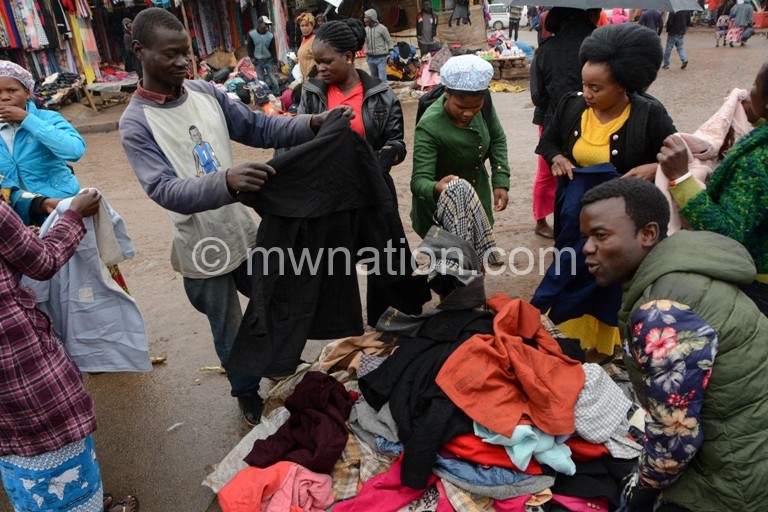Fresh call to ban second-hand clothes
Players in the textile and garment industry have asked the Ministry of Industry to ban importation of second-hand clothes (kaunjika), which they argue is stifling the growth of the sector and the economy.
Industry players made the fresh call on Wednesday when Minister of Industry Roy Kachale visited some of them in Lilongwe and Mchinji to appreciate the quality of the products and challenges they face.

The visit comes after Minister of Finance Felix Mlusu announced in the 2020/21 Budget Statement that government will prioritise the local manufacturing industry when buying textile products such as uniforms for security agencies, among others.
The direction is in line with government’s desire to ensure growth of local industries into large manufacturing enterprises to achieve quick job creation and economic development.
In an interview, Lilongwe, Textiles and Tailoring Cooperative chairperson Linley Chimwaza said they understand that they have to improve quality of the products to ensure they meet government standards, but the influx of second-hand-clothes is killing their prospective growth.
She said: “We are asking the government to stop imports of second-hand clothes so that Malawians should be able to buy Malawian products and grow the industries and the economy.
“We have the capacity and all we need is support and protection..”
Chimwaza said prioritising local textile manufacturers alone was not enough, but that deliberate efforts should be made to protect local producers.
In an interview, Kachale admitted that most uniforms or garments in State security agencies are imported; hence, government took a deliberate step to ensure that products manufactured locally are prioritised in procurement.
He said apart from empowering local producers, the move will help to preserve foreign currency and empower people to achieve tangible socio-economic development.
Said Kachale: “We are giving the opportunity to small and medium enterprises, but we are not going to do it if we are not sure of the quality that is required.”
In an earlier interview, Minister of Trade Sosten Gwengwe said government cannot immediately ban importation of second-hand clothes given production inadequacies in the local textile industry to meet the demand.
He said doing so could create acute scarcity of clothes and garments on the market, a development that can disadvantage majority of low-income earners.
Economist Betchani Tchereni, who teaches economics at The Polytechnic, a constituent college of the University of Malawi, said government needs to regulate the importation of second-hand clothes by introducing hefty taxes as a control measure to protect the local industry
In the Control of Goods Act operationalised on July 24 this year, business operators will be required to have an import licence to enable them import second-hand clothes.
The Act has, however, completely banned importation of second-hand underwears and bras.





